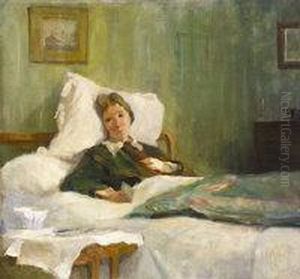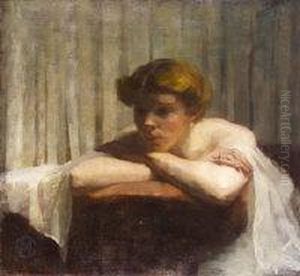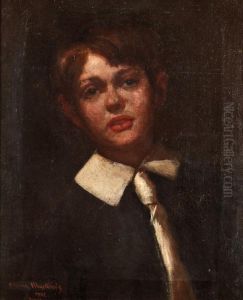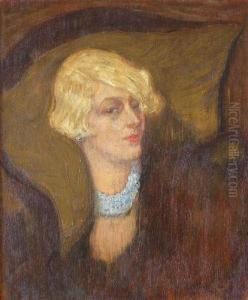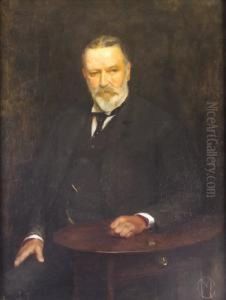Casimir Dunin, Count Markiewicz Paintings
Casimir Dunin, Count Markiewicz was a Polish nobleman, playwright, and theater director, who is perhaps most famously known as the husband of Constance Markiewicz, née Gore-Booth, an Irish revolutionary, suffragette, and politician. Born on March 15, 1874, into the Polish szlachta (nobility), he was part of the Dunin-Markiewicz family and held the title of 'Count'. His life was marked by an interest in the arts and a commitment to progressive social and political causes, which was unusual for someone of his aristocratic standing.
Casimir pursued a career in the arts, often overshadowed by his wife’s political fame. He was a painter and a set designer before turning his focus to theater. In the late 19th and early 20th centuries, he became involved in the theater scene in Kraków and subsequently in Dublin, where he met Constance. They married in 1900 and had one daughter, Maeve. The couple was deeply involved in the cultural life of Dublin, and they both played significant roles in the Irish nationalist movement. Casimir shared his wife’s passion for Irish independence, and he supported her both ideologically and practically during the Easter Rising of 1916, although his role was less prominent.
Despite his involvement with the Irish nationalist cause, Casimir continued to work in the arts. He was known for his plays and his involvement with the Abbey Theatre, the national theatre of Ireland, which was an important institution in the Irish Literary Revival. The revival was a movement aimed at establishing a cultural identity for Ireland that was separate from English influences. Casimir’s work in theater during this time contributed to this broader cultural project, although his contributions are not as well documented or celebrated as those of some of his contemporaries.
Casimir Dunin Markiewicz's later years were marked by a decline in both his political activity and his artistic output. After the death of his wife Constance in 1927, who had by then become an iconic figure in Irish history as the first woman elected to the British House of Commons, Casimir’s public presence faded. He passed away on November 29, 1932, leaving behind a complex legacy intertwined with the cultural and political upheavals of early 20th-century Ireland. His life and work serve as an example of the diverse contributions of the lesser-known figures within significant historical movements.
